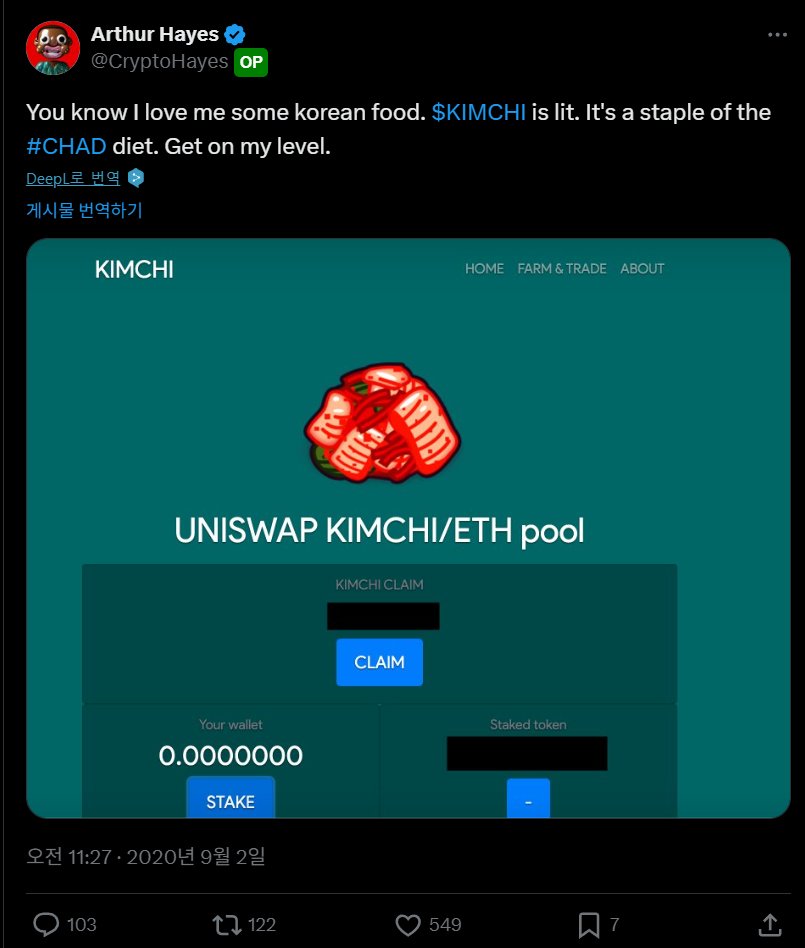The process of switching from liquidity exit to player

I've been reading Ponyo (@13300RPM) and Jay's (@JayLovesPotato) articles, which I really like for a long time.
I love Korea
Will we see Korea as a dumb liquidity outlet or a smart collaboration partner?
: : Will You See Korea as a Dumb Exit Liquidity Pool — or as a Smart Strategic Partner?
Koreans are often described as “creative.” While many factors contribute to this perception, one trait stands out: a keen sensitivity to trends, coupled with a fast and active engagement with them. When a new wave emerges, Koreans don’t just observe — they dive in, reinterpreting it in unique ways and often producing outcomes that surprise even the originators.
Crypto has been no exception. Although the underlying philosophy and technological trends began in the West, Korea rapidly absorbed and evolved them. As a result, Korea has consistently ranked among the top in global trading volume — regardless of market conditions. In some cases, like the rise of Terra (though it ultimately ended in failure), Korea even led the global narrative for a time.
Of course, due to a lack of regulatory clarity, Korea’s crypto scene has long skewed toward speculation rather than serious investment or building. This environment created and sustained vast pools of liquidity, and over time, many global projects began to view Korea primarily as a source of “exit liquidity.”
But let’s be clear — Koreans are far from dumb. We observe, we learn, and increasingly, we are co-architecting strategies that maximize mutual benefit.
If you’re still counting on Korean retail to blindly buy into your token — the foolish one might actually be you.
More importantly, Korea is laying the groundwork for transformation at a remarkable pace. The government is actively restructuring regulations in a more crypto-friendly direction, and we at @FourPillarsFP are receiving a growing number of consultation and collaboration requests from local institutions and policymakers.
Seminars are becoming routine, and the national discourse has begun to shift — from caring speculation to meaningful innovation that can create real-world impact.
Fueled by a high density of talent and a sharp rise in industry literacy, Korea is now moving into its next chapter — faster than ever before.
Global projects that have sensed this early are already engaging deeply to build long-term synergy in Korea. Some are sourcing talent directly. Others are facilitating genuine collaboration through initiatives like developer sessions. These are not the same as short-sighted marketing pushes or empty meetups that burn through budgets and disappear without leaving trust or impact.
So, who will be the real winner in the long run?
1 / The message that the two of you threw at the same time explained what was disappointing about the building that was pushed aside by the speculative perspective in the Korean market and how we can be optimistic about the future that is improving.
2 / Clearly, Korea took a fast position in the last cycle. Many investors learned the narrative at a fast tempo in each cycle, and although it did not start in Korea, there were many metas that were led by Korea.
3 / Participated in a multi-stage ICO in 2017, ICON (30th in market cap) From $KIMCHI finance, which raised $500 million in liquidity in one day at the start of the Defi Summer in September 2020, to Klaytn, the $LUNA of the Algorizmic stablecoin that was the 6th largest market cap at the time.
4/ Unfortunately, many attempts failed and led to crashes, but there were certainly meaningful attempts.
5/ Before creating better infrastructure and products, these failures were used as an opportunity to protect users by flooding in with laws aimed at not repeating such mistakes, but I think this ended up hindering attempts to develop technology.
6 / On the other hand, the rest of the projects that disappeared from the top 100 were overseas projects, except for Korean projects. A lot of rugs that we don't see are constantly happening globally.
7 / The problem is that the only thing left for the advanced crypto countries, which have been blocked from planting flags and development attempts in the crypto world, is to anticipate and invest in the actions that define the market frame of the global big players, and the time when success or failure depends on how well they research and invest in early overseas projects is passing.
8 / It seems that these early overseas project investment opportunities are gradually closing to individuals. Initial investment deals such as stablecoins, payments, and exchanges are no longer open as ICOs, but are selectively opened only to the financial sector and VCs in the form of private LP deals and CBs.
9 / @justinsuntron, which was supposed to follow a belated narrative every day, eventually succeeded in creating a defi ecosystem tied to the Tron chain, two CEX exchanges, and the issuance of a stablecoin, while establishing the Tron chain itself as a stable global remittance chain. It generates 1-2 trillion won in revenue every year

10 / MEV groups and transaction fees of transactions colluding with validators that occur on specific country-based chains such as Solana and Base seem to be difficult to interfere with in the future.
11 / However, I honestly don't know if we should be pessimistic as the current situation of overseas projects coming to Korea continues.
12 / Currently, crypto-friendly policies are being passed in stages in line with global pressures, and I personally think that investors in Korea are at the stage of learning the market for the larger market while keeping their positions.
14 / I think the biggest problem with the current situation feeling like it's being looted is the late appearance of killer apps that are far from quick investment and judgment.
24.06K
14
The content on this page is provided by third parties. Unless otherwise stated, OKX TR is not the author of the cited article(s) and does not claim any copyright in the materials. The content is provided for informational purposes only and does not represent the views of OKX TR. It is not intended to be an endorsement of any kind and should not be considered investment advice or a solicitation to buy or sell digital assets. To the extent generative AI is utilized to provide summaries or other information, such AI generated content may be inaccurate or inconsistent. Please read the linked article for more details and information. OKX TR is not responsible for content hosted on third party sites. Digital asset holdings, including stablecoins and NFTs, involve a high degree of risk and can fluctuate greatly. You should carefully consider whether trading or holding digital assets is suitable for you in light of your financial condition.


